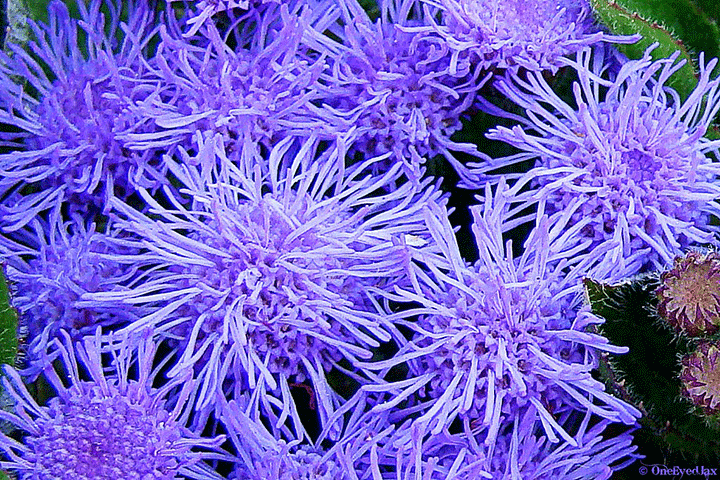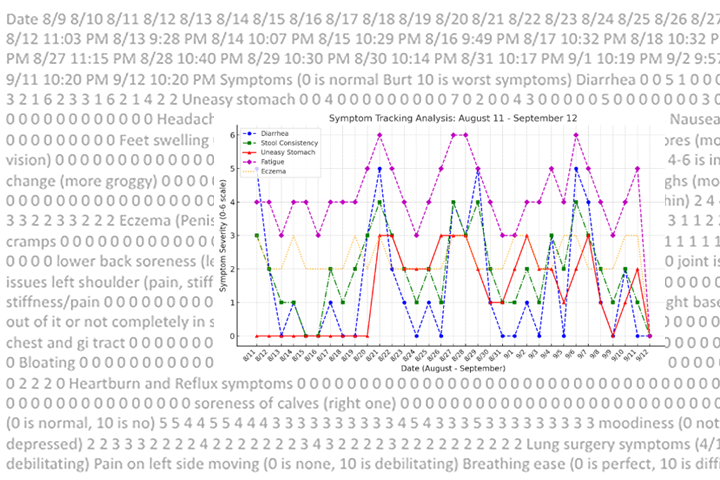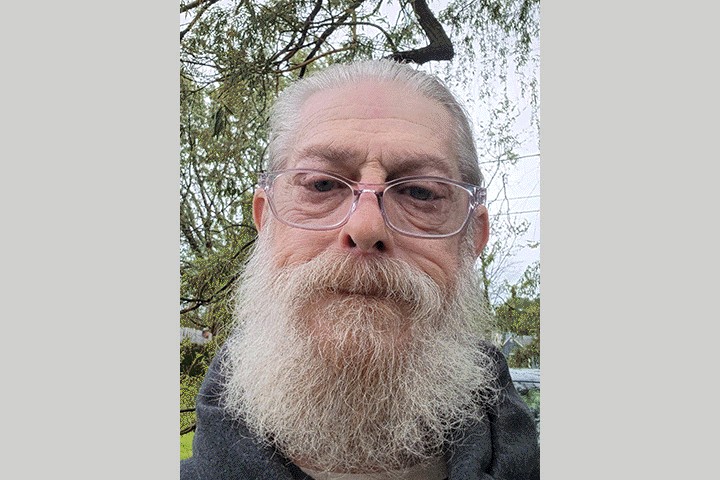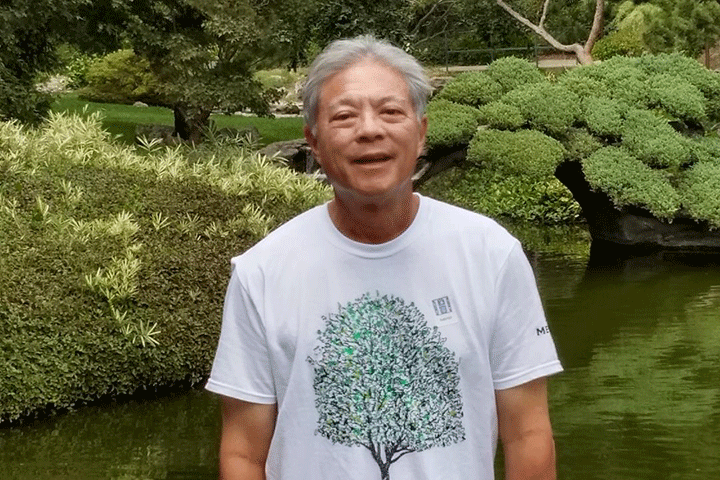Blessed to Be Here and Healthy
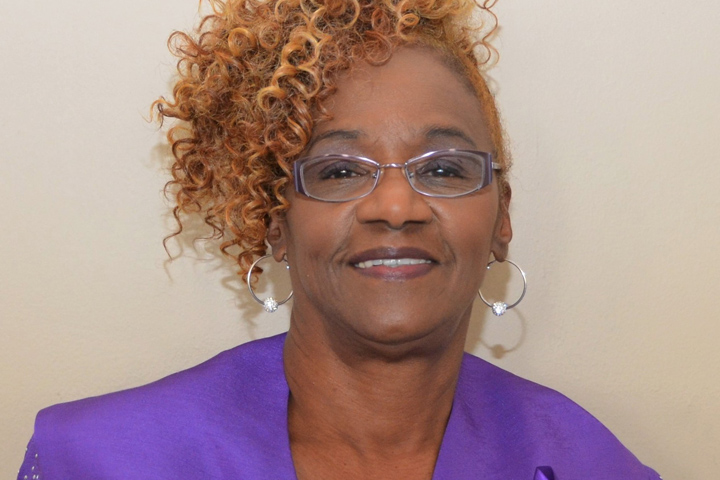
- Long-ignored symptoms turn out to be pancreatic cancer
- Second opinion and a Whipple surgery
- Slow healing but finally recovered
My cancer story probably began like most—pain, fatigue, weight loss, loss of appetite. And, like most, I ignored these symptoms.
This could be stress, I told myself. After all, I certainly had my fair share of it. My husband was battling prostate cancer and I found myself inside a whirlwind of emotions. I had to work; we needed my insurance. It was hard to know which end was up. Not only did my husband have cancer, he had other health issues which made him high-risk. Though my own pain was constant, I fought through it to support him.
The pain I was experiencing in my back and side was getting worse. Also, I was itching—a lot. Obviously, something was going on. I could no longer ignore it and took over-the-counter medication, but to no avail. The pain intensified to the point where I had to consult my primary care physician. I had no idea my life was about to change forever.
My doctor also felt my symptoms could be stress-related; however, she wanted to run more tests to give me a more definitive diagnosis. She ordered x-rays, scans, and blood work. These resulted in a referral to see an oncologist and a surgical specialist, where there were more scans, and tests—an MRI, ultrasound, and endoscopy. The culprit was revealed. A tumor was on the tail-end of my pancreas—I was diagnosed with pancreatic cancer in early November 2013. I knew tumors could be benign or malignant. Even though it wasn’t known which at that time, I was suddenly stricken with dread. Crying desperately, I asked, “Why me, God?” My husband and daughters were always there to support me. Without them, I’m not certain how I could have made it through this.
Diagnosis: Pancreatic Cancer
A visit back to see the oncologist was one I’d never forget. My tumor was malignant; however, it was in its early stages, had not spread, and was confined to the tail-end of my pancreas. The news was not as bad because it was in the early stages and could have been encouraging; but all I heard was the “C” word. I couldn’t believe it, I have cancer. That was the last thing I expected to hear. How could this be? I felt relatively healthy, walked daily, and ate the right foods. There was a minor issue with my blood pressure. The doctor kept trying to reassure me that it was caught early and there was hope, but all his words fell on deaf ears.
I knew nothing about pancreatic cancer and as soon as I was able, I grabbed my computer and began my research. Sometimes what you don’t know is best. I found out pancreatic cancer is dreadfully deadly. The survival rate is very low and the life span, if you were fortunate enough to live that long, is only five years. Most patients die within months of diagnosis. How could this be happening to me?
The oncologist told me that I was a good candidate for the Whipple surgery, but we needed to act now before the cancer spread anywhere else. He wanted to schedule the surgery in early December; however, my husband felt we should get a second opinion. We consulted his oncologist at the Cancer Treatment Centers of America (CTCA) in Newnan, Georgia.
A Second Opinion and a Whipple Surgery
At CTCA, Dr. George Daneker, the head surgical oncologist, reviewed my file and wasted little time accepting me. He ran tests of his own and confirmed the findings of the other oncologist. He, too, told me that I was a good candidate for the Whipple surgery because I was in the early stages of the disease. I was healthy and non-diabetic which is very important for this surgery. He explained I could lose my kidney, spleen, left adrenal gland, and part of my pancreas. My chance of survival was better because the cancer was found early. The surgery could increase my life expectancy to five years. However, it all depended on what was found.
Everything was happening so fast. Again, I asked God, “Why me?” There were so many people depending on me. I was afraid to discuss this with anyone outside of my immediate family. However, I did confide in Bishop George Crenshaw (the pastor at my church at the time) and Rev. Merchuria Williams. I asked them not to share my news with anyone. It was comforting to have their support and prayers. My situation seemed hopeless, but I finally let go of enough fear to trust God. I had to lean on Him and trust Him to heal me.
My surgery was scheduled for January 2, 2014. The morning of the surgery, both Bishop Crenshaw and Rev. Williams were there. I will never forget my doctor telling me the surgery went well. They didn’t have to remove my kidney. He did remove my spleen, adrenal gland, and a small portion of my pancreas. This was great news. Even though I was still scared, I allowed myself to relax in the healing presence of my God.
A Tough Recovery
I can’t say that all was well after that. Nope, it was far from it. My recovery was hectic. I was still very afraid of not surviving and I couldn’t eat or drink. I was too weak to walk around and was in excruciating pain daily. The prescribed pain medication did little to help. I spent a lot of time in prayer.
Because I wasn’t eating, my doctors threatened to put me on a feeding tube. I just wasn’t able to eat. My husband tried everything, mainly smoothies. All I could do was pray and pray and thank God for each day I was alive. I was in a lot of pain and did not think I’d make it through. But, praise the Lord! God healed my body. I’m feeling much healthier and stronger.
In Fall 2019, I celebrated five years and six months as a pancreatic cancer survivor. The local television show 5 Alive told my story in September. And on Sunday, November 17, during Pancreatic Cancer Awareness Month, Pastor Eldren D. Morrison, the current pastor at my church, showed that clip as part of our service. Rev. Williams spoke and made comments on the type of cancer I had and the warning signs for people to be aware of and how acknowledge those signs and to seek medical attention. It was an inspiration to my church members and to me.
After church, I had several people come and congratulate me on being a survivor and to let me know that they had recently lost loved ones—one young lady lost someone only three weeks earlier. Knowing that there are survivors meant a lot to them. I told everyone that the survivor rate has actually climbed since I was first diagnosed because of the new research and the money raised for the cause.
For a long time I did not speak out about pancreatic cancer. But I realized after church that because there are few survivors there are few people to speak out. I can show others that people can survive.
I thank God and give him the Honor and Praise for directing me to seek help. I’m still cancer-free. Hallelujah!
